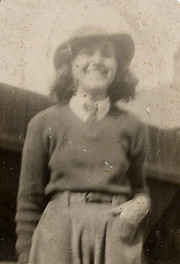 Hartlepool Sports & Leisure
Hartlepool Sports & Leisure
- Cinemas, Theatres & Dance Halls
- Musicians & Bands
- At the Seaside
- Parks & Gardens
- Caravans & Camping
- Sport
 Hartlepool Transport
Hartlepool Transport
- Airfields & Aircraft
- Railways
- Buses & Commercial Vehicles
- Cars & Motorbikes
- The Ferry
- Horse drawn vehicles
 A Potted History Of Hartlepool
A Potted History Of Hartlepool
- Unidentified images
- Sources of information
- Archaeology & Ancient History
- Local Government
- Printed Notices & Papers
- Aerial Photographs
- Events, Visitors & VIPs
 Hartlepool Trade & Industry
Hartlepool Trade & Industry
- Trade Fairs
- Local businesses
- Iron & Steel
- Shops & Shopping
- Fishing industry
- Farming & Rural Landscape
- Pubs, Clubs & Hotels
 Hartlepool Health & Education
Hartlepool Health & Education
- Schools & Colleges
- Hospitals & Workhouses
- Public Health & Utilities
- Ambulance Service
- Police Services
- Fire Services
 Hartlepool People
Hartlepool People
 Hartlepool Places
Hartlepool Places
 Hartlepool at War
Hartlepool at War
 Hartlepool Ships & Shipping
Hartlepool Ships & Shipping

Wartime Reminiscence by Violet Butcher (nee Forstad)
In 2005 Hartlepool's Museum and Library Services worked together on a project called 'Their Past, Your Future', which commemorated the part played by local people in the Second World War. As part of the project Violet Butcher reminisced about life on the Home Front. This is her story, in her own words:
I remember the Sunday morning in September when Mr Chamberlain announced on the wireless that Britain was now at war with Germany. Our neighbour was in our house at the time and she burst into tears, at the thought of all the people who would die. Eventually we were issued with gasmasks and had to go to the Town Hall to collect our identity cards and ration books. We had clothing coupons and ration books for meat, butter, lard and sugar. We were allowed one egg per month. We helped out by queuing at the Fish and Chip shop, and standing in long queues for fruit whenever it came in. It was mostly apples, no bananas or oranges. Everyone had to put up blackout curtains. You had to make sure there was no light showing. I remember we had to cover half of our cycle lamps so that light would shine only downwards. It was so dark without any street lights I once rode straight into a wall and another time found myself in the wrong street coming home.
Our family all “did their bit” for the war. My elder brother joined the Air Force. My sister went to Birmingham to work in the factories to replace the men.
I joined the Women’s Land Army and my younger brother joined the Merchant Navy, sailing to Russia with the Convoys. Both my parents and younger sister were in the Civil Defence. Everyone with a garden had Anderson shelters but those without gardens had brick and concrete shelters in the front street. People used them at first but as time went on we decided to stay in our warm beds and hope for the best. Our neighbours’ children were terrified when the sirens went so my mother would get them all in our house, put the Gramophone (which played recorded music) on and all have a sing-a-long.
I did my training for the Land Army at the College of Agriculture at Durham. We shared our dining hall with a group of men who were conscientious objectors. They worked on the farms. They kept themselves very much to themselves but I didn’t hear anyone call them. After all they were still helping with the War Effort by doing farm work. I daresay some people regarded them as cowards I believe the other alternative was to work down the coalmines.
Rationing lasted about eight years I think, so people became quite good at making do. When bedsheets became worn in the centre they were cut through and the side became the middle. When they were past repair they became tea towels and dusters. Old towels became face cloths and floor cloths. People would dye bedspreads to have a change in the bedroom and lots of rugs were made to brighten things up. I can remember dying muslin (very fine cotton) nappies to make net curtains for the kitchen window. You could even eke out your butter ration by keeping the cream from the top of the milk, putting it in a screw top jar and shaking it until a small lump of butter formed. (Lots of shaking needed.) Children could no longer buy sweets so my Uncle who had a bakery opposite the school did a roaring trade in fresh baked hot buns for a halfpenny each.
Some children would take a scrubbed carrot to munch and others would have a little packet of cocoa to dip their finger in. Occasionally you’d be given a little boost. A lady I knew seemed to get extra somehow and she would sometimes give us some sugar or butter. Even a few clothing coupons once, which were very welcome. That was on my birthday.
Related items :
 Home Front - Second World War
Home Front - Second World War
A selection of images and documents relating to the 'Home Front', during the Second World War.
More detail » Violet Forstad - Land Army girl
Violet Forstad - Land Army girl
 Donated by Violet Butcher
Donated by Violet ButcherThis is a photograph of Violet Forstad taken during the Second World War, when she served in the Women's Land Army on the 'Home Front'.
More detail »



